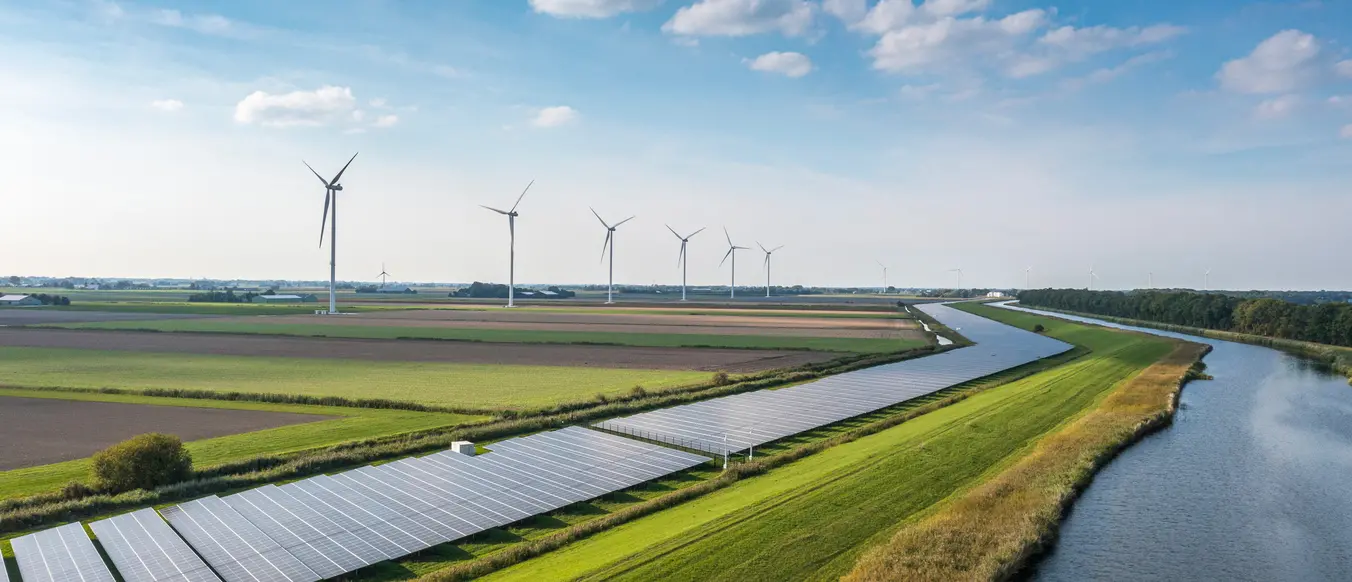Every great sustainability story begins with a decarbonization strategy

In today’s climate-conscious world, organizations are under increasing pressure to reduce their carbon footprint and demonstrate environmental leadership. But while the urgency to act is clear, the path forward often isn’t. That’s why taking a strategy-first approach to decarbonization is not just beneficial—it’s essential.
A well-defined decarbonization strategy provides the clarity, structure, and direction organizations need to make informed decisions, prioritize impactful projects, and ultimately achieve their sustainability goals. Without it, companies risk making costly missteps, missing opportunities, or falling short of their climate commitments.
Decarbonization strategy as a roadmap for clarity
At its core, a decarbonization strategy is a roadmap. It helps organizations understand where they are on their sustainability journey and what steps they need to take next. Whether your company is just beginning to explore emissions reduction or is already implementing renewable energy solutions, a strategic framework ensures that every action is aligned with broader business and climate objectives.
This clarity is especially important given the wide range of decarbonization options available today. From onsite solutions like solar PV and battery storage to offsite mechanisms such as Power Purchase Agreements (PPAs), Virtual Power Purchase Agreements (VPPAs), and, Energy Attribute Certificates (EACs), the choices can be overwhelming. Without a strategy, organizations may struggle to determine which projects will deliver the greatest impact or align best with their operational footprint and budget.
Making smarter decisions through a decarbonization strategy
With multiple decarbonization options on the table, it’s easy to feel uncertain or hesitant, especially when large-scale investments are involved.
A well-structured decarbonization strategy provides a framework for evaluating these options based on feasibility, impact, and alignment with long-term goals. In many cases, organizations also benefit from engaging with external experts who can offer technical, financial, or regulatory insights to support more informed decision-making.
This kind of strategic planning helps avoid reactive or fragmented efforts and instead fosters a proactive, data-driven approach. Ultimately, it empowers organizations to make confident, coordinated choices that contribute meaningfully to their broader sustainability objectives.
Continuous measurement of what matters
A strategy-first approach doesn’t end with project implementation. In fact, that’s just the beginning.
Once decarbonization initiatives are underway, it’s critical to measure their carbon performance and track progress against defined targets. This performance data provides valuable insights into what’s working, what needs adjustment, and where future efforts should be focused.
For example, a company might install onsite solar panels expecting a significant drop in emissions. While energy costs may decrease, emissions data could reveal that outdated HVAC systems or inefficient manufacturing processes are still driving high energy consumption. Without a strategy that includes ongoing measurement and analysis, these hidden inefficiencies might go unnoticed, leading to missed opportunities for deeper carbon reductions.
By consistently measuring the impact of both new and existing projects, organizations can validate their progress and identify opportunities for improvement. This not only strengthens accountability but also ensures that the strategy remains relevant and results driven.
Building trust and competitive advantage
Beyond compliance and risk mitigation, a strong decarbonization strategy can also be a powerful driver of brand value and competitive advantage. Stakeholders, from investors to customers to employees, are increasingly looking to align with organizations that take climate action seriously.
By demonstrating a clear, credible, and measurable approach to decarbonization, companies can build trust, enhance their reputation, and attract top talent. In many cases, sustainability leadership also opens doors to new markets, partnerships, and innovation opportunities.
Decarbonization strategy as a catalyst for transformation
Ultimately, a robust decarbonization strategy is more than just a plan—it’s a catalyst for transformation. It empowers organizations to:
- Understand their emissions profile and reduction opportunities
- Prioritize high-impact, cost-effective projects
- Align sustainability efforts with business goals
- Track and report progress with confidence
- Adapt to changing conditions and emerging innovations
- Demonstrate leadership in a low-carbon economy
By taking a strategy-first approach, companies can move forward with clarity and purpose—accelerating their journey toward a low-carbon future while creating long-term value for their business and the planet.
Ready to build your decarbonization strategy?
If you're ready to take action but unsure where to begin, here are some practical first steps:
- Establish a baseline: Conduct a comprehensive emissions audit to understand your current carbon footprint.
- Set clear goals: Define short- and long-term emissions reduction targets aligned with your business strategy.
- Engage stakeholders early: Involve internal teams and external experts to ensure buy-in and informed decision-making.
- Identify quick wins: Look for low-cost, high-impact opportunities to build momentum, such as energy efficiency upgrades.
- Build a roadmap: Develop a phased plan that prioritizes initiatives based on feasibility, impact, and ROI.
- Implement measurement systems: Put tools in place to track progress, validate outcomes, and refine your approach over time.
A clear, actionable decarbonization strategy is the foundation of meaningful climate progress. At World Kinect, we help organizations design and implement strategies that deliver measurable results.
Let's talk next steps.
Get in touch with World Kinect to start building a smarter, more impactful decarbonization strategy today.
